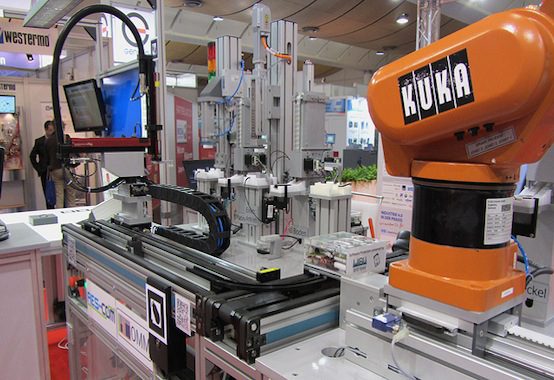The Jobs … Still Not Forthcoming

Joel Kotkin makes a point about the tech economy that can’t be made enough:
[T]he tech oligarchs are widely beloved by much of the population. As Christopher Lasch noted, modern society teaches “people to want a never-ending supply of new toys.” People love their toys, and as long as Apple, Google and the rest keep supplying them, those firms are likely to remain something of American heroes.
Yet, for the most part, these people—including those in the entertainment sector—are not generating lots of middle-wage jobs, or any at all. Over the past decade, the information sector has lost more than 850,000 jobs. Social-media firms do not employ very many people overall; and many of their employees do not require high salaries as long as they get to play in the glitiziest sandbox. There are still 40,000 fewer people working in Silicon Valley than in 2001.
Kotkin goes on to note that there’s a “modest recovery” underway in the manufacturing sector.
About that recovery: Kotkin is right about its modesty. Time magazine recently published an excellent cover story on the (relatively speaking) boom in U.S.-based manufacturing. Advanced manufacturing industries like 3D printing and shale-drilling are data-driven and technology-reliant. Hence, like the tech industry more broadly, the manufacturing renaissance isn’t producing many jobs in the aggregate. As Rana Foroohar and Bill Saporito write in Time:
Today’s U.S. factories aren’t the noisy places where your grandfather knocked in four bolts a minute for eight hours a day. Dungarees and lunch pails are out; computer skills and specialized training are in, since the new made-in-America economics is centered largely on cutting-edge technologies. The trick for U.S. companies is to develop new manufacturing techniques ahead of global competitors and then use them to produce goods more efficiently on superautomated factory floors. These factories of the future have more machines and fewer workers—and those workers must be able to master the machines. Many new manufacturing jobs require at least a two-year tech degree to complement artisan skills such as welding and milling. The bar will only get higher. Some experts believe it won’t be too long before employers expect a four-year degree—a job qualification that will eventually be required in many other places around the world too.
Understanding this new look is critical if the U.S. wants to nurture manufacturing and grow jobs. There are implications for educators (who must ensure that future workers have the right skills) as well as policymakers (who may have to set new educational standards). “Manufacturing is coming back, but it’s evolving into a very different type of animal than the one most people recognize today,” says James Manyika, a director at McKinsey Global Institute who specializes in global high tech. “We’re going to see new jobs, but nowhere near the number some people expect, especially in the short term.”
Welcome to the brave new 21st-century American economy: where growth is painfully slow; rewards are confined to the ranks of the educated; and even the good news is kind of bad.
Comments